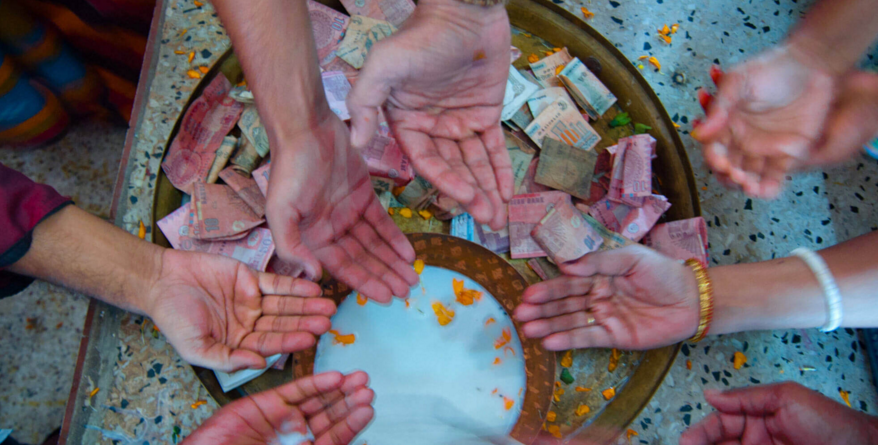This is Part 2 of the IntelligentHQ Guide to Ethical Banking. This three-part series explores the history of ethical banking, some of the concepts behind it and gives some examples of banks considered to be ethical banks .
There is growing pressure in the UK for ethical banking to gain precedence. Move Your Money UK is a campaign that is operating nationally with a view to trying to create a better banking system. It is believed by Move Your Money that this can be achieved even by individuals by the way in which they exert their buying power. Move Your Money seeks to offer people information to help them to make informed choices about the financial institutions that they invest their money with. The overall goal of the campaign is to support and strengthen the ethical banking sector.
Move Your Money is a not for profit organisation that is independent. The organisation aims to raise awareness about the variety of financial institutions that are out there and available for UK consumers to utilise. The organisation holds a firm belief that the financial system should:
“Serve the interests of people and planet before itself, and that a financially engaged, educated and active citizenry is key to achieving this aim.”
Bank Ranking Scorecard
Consequently, Move Your Money has developed a Bank Ranking Scorecard which helps consumers to be able to gain a more informed perspective on ethical banking. The Scorecard was released in 2013, following the administering of a survey in the UK. This highlighted that what consumers were most concerned about in banking was honesty, customer service, culture and impact on the real economy as well as ethics. It then gathered data that is available publicly across a range of metrics to help review these areas before developing the scorecard.
Honesty
Honesty was considered to be a particularly important manner, especially following the banking crisis. Specific factors assessed in this regard were whether the financial institutions examined had received fines for criminal activities, used recognised tax havens, lobbied against effective change or had been punished for misleading advertising.
Customer Service
With regard to customer service meanwhile, Move Your Money looked at the ways that banks attract custom and retain it, among other metrics. Some of the figures looked at included how many complaints organisations have relative to customer numbers, whether or not they mis-sold PPIs and other financial products, how often the Financial Ombudsman Service is called in to settle complaint disputes, and other issues.
Culture
Culture was also considered to be an important factor in the Scorecard. After the banking crisis there have been concerns that a male-dominated and bonus driven financial industry was culturally inclined to taking more risks with other people’s money. Metrics examined in this regard reviewed how much power customers of the organisation have in influencing the institution’s policies, whether directors’ pay is disproportionately high, the bonus culture at the organisation and the number/proportion of women on the board. Looking at the area of the Real Economy, the Scorecard assesses the possibility that organisations could damage the stability of the system by being too big to fail, the level of risky behaviour engaged with in speculative financial derivatives and the proportion of the organisation’s assets that support the real economy, namely providing real people and businesses with finance.
Ethics
Finally the Scorecard reviewed ethics in a very common sense and down to earth way. Move Your Money used the Ethical Consumer’s Ethicscore to look at the impact of the financial institution in the businesses, practices and activities they support. This included looking at where support has been given for financing fossil fuel extraction, investment in unethical industries like animal testing, arms and weaponry and industrial food production, respect for human and workers’ rights and the institution’s sustainability policies and positive investment.
The outcome of all of this was a ranking of financial institutions into three categories, namely best, middle and worse, with each institution getting a score out of 20, and ultimately an overall mark out of 100%. The institutions that ranked the highest were Ecology BS (Building Society), Charity Bank, Triodos Bank, Cumberland BS, Principality BS and Coventry BS all with scores of over 80%. Shockingly, or perhaps not, the banks that scored the lowest, all with scores under 20% are almost all well-known high street names. These include First Direct, HSBC, Marks and Spencer Bank, Coutts, NatWest, the Royal Bank of Scotland, Ulster Bank and Barclays. Is it time to move your money? We suspect it might be.
Guide to Ethical Banking – Part 3
Guide to Ethical Banking – Part 1

Paula Newton is a business writer, editor and management consultant with extensive experience writing and consulting for both start-ups and long established companies. She has ten years management and leadership experience gained at BSkyB in London and Viva Travel Guides in Quito, Ecuador, giving her a depth of insight into innovation in international business. With an MBA from the University of Hull and many years of experience running her own business consultancy, Paula’s background allows her to connect with a diverse range of clients, including cutting edge technology and web-based start-ups but also multinationals in need of assistance. Paula has played a defining role in shaping organizational strategy for a wide range of different organizations, including for-profit, NGOs and charities. Paula has also served on the Board of Directors for the South American Explorers Club in Quito, Ecuador.




























